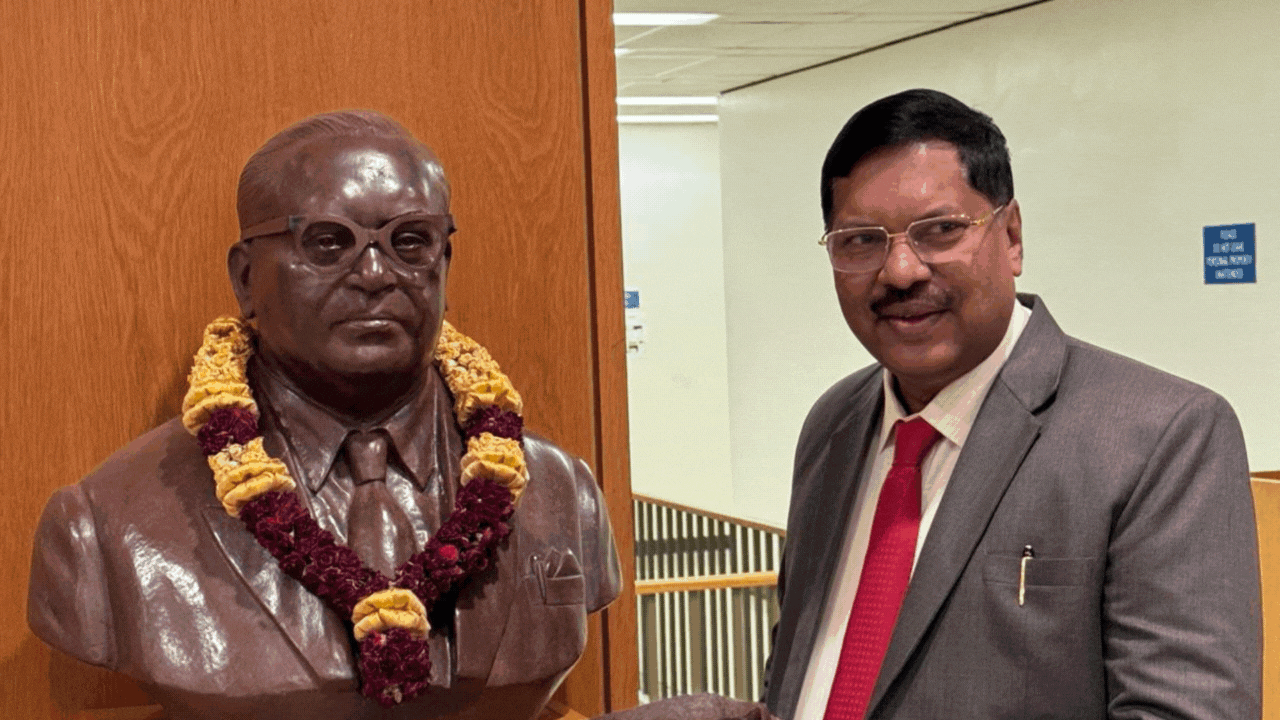[ad_1]
NEW DELHI: The proper to info is essential for residents to successfully take part in elections, a Supreme Court docket decide who was a part of the electoral bonds verdict has stated.
Justice B R Gavai, who’s in line to be the Chief Justice of India subsequent yr, spoke on how an knowledgeable citizenry is necessary for democracy, in his lecture on Tuesday at america of America’s Columbia College’s Regulation College
“In a really current judgment on the validity of nameless electoral bonds, the Supreme Court docket held that disclosure of knowledge on electoral bonds to the voter can’t be restricted on the grounds of the informational privateness of the monetary contributions to political events.The growth of the liberty to speech and expression to incorporate the fitting to info is a vital recognition for the citizenry to successfully take part within the elections, which, in flip, is an intrinsic function of democracy,”
In his deal with on the theme of “75 years of Transformative Constitutionalism” justice Gavai additionally paid homage to Dr BR Ambedkar, who’s a well-known alumni of Columbia College.
The decide – who will likely be solely the second particular person from Scheduled Caste (SC) neighborhood to take over because the CJI within the court docket’s historical past, started his lecture by noting that “It is just due to Dr. Ambedkar and the Structure of India that I’ve reached this place” and expanded on his views in regards to the function of India’s Supreme Court docket through the years.
Justice Gavai was a part of the Structure Bench that put aside the 2018 electoral bond (EB) scheme final month. Earlier than a rapt viewers, the senior decide outlined how the Supreme Court docket has “underscored the need of the compliance of the electoral course of with the rules of the Structure and the legal guidelines for the success of democracy. In doing so, it has repeatedly burdened on free and truthful participation of voters within the electoral course of.”
He identified that earlier too it was the apex court docket that declared that voters have a proper to have details about the antecedens, together with the felony previous of candidates contesting elections, citing a landmark 2002 verdict by the apex court docket.
The decide additionally underlined that it’s “the responsibility of the courts to make sure that the legislation stays related amid shifting societal norms, and when confronted with a number of interpretations, the courts go for the one which finest advances the constitutional values. Central to this transformative ethos is the function of the Supreme Court docket, which has to behave because the custodian of the Structure and the last word arbiter of justice.”
Justice Gavai elaborated on the progress made by each the Indian legislature and the SC during the last 75 years to offer full expression to the transformative nature of the Structure of India.
“The Structure of India is proof of the transformation of the governance construction in India from colonialism to democracy and from the ‘order of the Queen’ to the ‘will of the individuals’…….Since its inception, the Indian Structure has been hailed as a transformative doc that seeks to uphold justice, equality and dignity for all residents” the decide underlined.
The decide gave two examples to legislation college students, professors and even judges of Unites States who attended the occasion. Within the landmark resolution of Navtej Singh Johar v. Union of India, the Supreme Court docket recognised the rights of the LGBTIQ++ neighborhood that weren’t explicitly offered for within the Structure. “It expounded the idea of transformative constitutionalism with regard to the Indian Structure as its skill to adapt and remodel with the altering wants of the instances,” he stated.
Giving one other instance the SC decide defined how within the “context of fixing and evolving instances, the Supreme Court docket took observe of the technological development within the up to date period, as in opposition to on the time of the drafting of the Structure, and declared privateness to be a elementary proper.”
It noticed that the relevance of the Structure “lies exactly in its skill to permit succeeding generations to use the rules on which it has been based to search out modern options to intractable issues of their instances” and “expanded the fitting of privateness to incorporate informational privateness and advocated for an information safety regime,” justice Gavai added.
Justice B R Gavai, who’s in line to be the Chief Justice of India subsequent yr, spoke on how an knowledgeable citizenry is necessary for democracy, in his lecture on Tuesday at america of America’s Columbia College’s Regulation College
“In a really current judgment on the validity of nameless electoral bonds, the Supreme Court docket held that disclosure of knowledge on electoral bonds to the voter can’t be restricted on the grounds of the informational privateness of the monetary contributions to political events.The growth of the liberty to speech and expression to incorporate the fitting to info is a vital recognition for the citizenry to successfully take part within the elections, which, in flip, is an intrinsic function of democracy,”
In his deal with on the theme of “75 years of Transformative Constitutionalism” justice Gavai additionally paid homage to Dr BR Ambedkar, who’s a well-known alumni of Columbia College.
The decide – who will likely be solely the second particular person from Scheduled Caste (SC) neighborhood to take over because the CJI within the court docket’s historical past, started his lecture by noting that “It is just due to Dr. Ambedkar and the Structure of India that I’ve reached this place” and expanded on his views in regards to the function of India’s Supreme Court docket through the years.
Justice Gavai was a part of the Structure Bench that put aside the 2018 electoral bond (EB) scheme final month. Earlier than a rapt viewers, the senior decide outlined how the Supreme Court docket has “underscored the need of the compliance of the electoral course of with the rules of the Structure and the legal guidelines for the success of democracy. In doing so, it has repeatedly burdened on free and truthful participation of voters within the electoral course of.”
He identified that earlier too it was the apex court docket that declared that voters have a proper to have details about the antecedens, together with the felony previous of candidates contesting elections, citing a landmark 2002 verdict by the apex court docket.
The decide additionally underlined that it’s “the responsibility of the courts to make sure that the legislation stays related amid shifting societal norms, and when confronted with a number of interpretations, the courts go for the one which finest advances the constitutional values. Central to this transformative ethos is the function of the Supreme Court docket, which has to behave because the custodian of the Structure and the last word arbiter of justice.”
Justice Gavai elaborated on the progress made by each the Indian legislature and the SC during the last 75 years to offer full expression to the transformative nature of the Structure of India.
“The Structure of India is proof of the transformation of the governance construction in India from colonialism to democracy and from the ‘order of the Queen’ to the ‘will of the individuals’…….Since its inception, the Indian Structure has been hailed as a transformative doc that seeks to uphold justice, equality and dignity for all residents” the decide underlined.
The decide gave two examples to legislation college students, professors and even judges of Unites States who attended the occasion. Within the landmark resolution of Navtej Singh Johar v. Union of India, the Supreme Court docket recognised the rights of the LGBTIQ++ neighborhood that weren’t explicitly offered for within the Structure. “It expounded the idea of transformative constitutionalism with regard to the Indian Structure as its skill to adapt and remodel with the altering wants of the instances,” he stated.
Giving one other instance the SC decide defined how within the “context of fixing and evolving instances, the Supreme Court docket took observe of the technological development within the up to date period, as in opposition to on the time of the drafting of the Structure, and declared privateness to be a elementary proper.”
It noticed that the relevance of the Structure “lies exactly in its skill to permit succeeding generations to use the rules on which it has been based to search out modern options to intractable issues of their instances” and “expanded the fitting of privateness to incorporate informational privateness and advocated for an information safety regime,” justice Gavai added.
[ad_2]
Supply hyperlink


